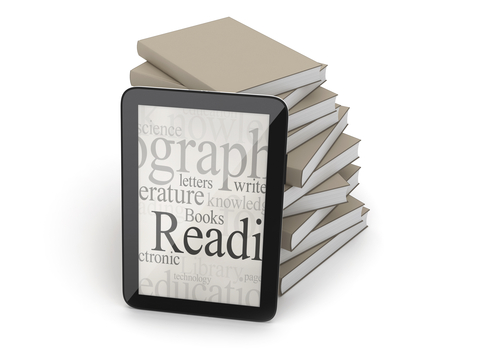Facebook Video Ads: Great for Small Businesses
Can your small business use video ads on Facebook? You bet you can! We make it easy and you can do it at a reasonable cost.
Video on Facebook is an efficient way to reach people
Small businesses can do this. We can help you do it easily and at a reasonable cost.
Here’s an example. Leelanau Uncaged on Saturday, September 24 had a great turnout. One business manager told us it was their biggest day of the whole year.
Part of the promotion was a Facebook video ad.
We took a 23 second video that was shot on a phone last year. We turned it into a Facebook ad and here’s what happened.
- We reached 29,000 unique individuals
- We had 33,000 video views – as many as 3,000 views a day
We Make It Easy
We did nothing to the video – no production at all. So why did it work so well? We did a few things in configuring the ad that made all the difference.
The cost was less than peanuts. The turnout was great and local businesses had a phenomenal day.
Looking for a way to make Facebook work for your business?
Give us a call for a no-cost consultation. Or use our convenient contact form to send us an email.
But Can They Read It?
Readability is particularly important these days when most of what happens on social media like Facebook happens on mobile devices. We're looking for knowledge, yes – but convenient knowledge. If it's too difficult to read forget it.
Writing for Your Audience
You pour your heart and soul into growing a thriving business. And if you're driven enough to succeed a big part of what gets you there is the way you marshal your marketing communications. How well you articulate what you do and what you sell may very easily make the difference between going back to the office with a new client or wondering where you went wrong.
So it's more than worthwhile to be as sure as you can that what you're saying is what your prospect is actually hearing. Today that means getting it right in social media as well as in your traditional media, collateral literature and interpersonal communications. Your Facebook business page, your blog, your email newsletter, your web site all have to communicate effectively.
The question is how. One way is to use something called a reading comprehension scale. It's a tool that helps you figure out how easy it is to read what you wrote. Some business owners are surprised to find that they write at a very high level. That's a good reflection on their intellect, language skills, knowledge and experience. But if their prospects are more comfortable reading at a more moderate level the intended message may be lost in a lot of complex compound sentences that contain lots and lots of long words.
Two Main Tools
The two main readability tools used today are the Flesch Reading Ease scale and the Flesch-Kincaid index. Google them and you'll find more than you wanted to know. The gist of it is the Flesch scale ranks a writing sample on a 100-point scale. The higher it scores the easier it is to read. The Flesch-Kincaid index estimates the grade level reading proficiency needed to comprehend the text.
Our general rule of thumb is to shoot for at least 60 on the Flesch scale and no higher than 8th grade on Flesch-Kincaid. If your text requires greater reading skill it's a good bet that your reader is going to need some extra time to understand what you're trying to say. So save them the time and say it as simply as possible.
Lowest Common Denominator Argument Misses the Point
We've run into way too many wannabe highbrows who are self-described sticklers on grammar and proper English. Invariably they accuse us of pandering to the lowest common denominator by using simple straightforward language.
Guess what? I'd rather have a piece of copy that someone can read through once and understand it than an elegant grammatically perfect construction that people have to read three times before they think they know roughly what you may be getting at.
Even those who read at post-graduate levels can find it more comfortable to read at a much lower grade level. Why? Because it's faster, it's easier to understand and retention is better. Stuff that in your lowest common denominator!
Both the Flesch and Flesch-Kincaid are baked into a number of software applications these days from word processors to blogs. I was dumbfounded when I saw a post today on a respected social media site in which the author recommended ignoring these tools. Instead, this author opined, you should just write for your audience.
Seems to me that's the whole point. These scales can tell you where your copy is in readability and how comfortable it will be for your reader to get through it. If you're writing for a blog that's read primarily by university faculty, rocket scientists, think tank experts and other brain trusts write with a bit more complexity. But if you're writing for us mere mortals keep it at a comfortable level.
Readability is Vital on Facebook
This is particularly true these days when most of what happens on social media like Facebook happens on mobile devices. That's because we're all trying to fit in as much as possible during each hectic day, and our smart phones and tablets are convenient means of reading whatever we can whenever we have a chance.
We're looking for knowledge, yes – but convenient knowledge. If it's too difficult to read forget it – I'll go back to Google and look for something that gives me what I need to know quickly, straightforwardly and simply. And if you don't do it chances are your competitor will.
So which would you rather be? The choices are A, a grammatically correct stickler who writes proper English but doesn't communicate very well or B, a colloquial speaker and writer who articulates simply and well – and thrives as a result.
I'll take a B any day.
(Writing for readability doesn’t have to be hard and it doesn’t have to be perfect. This was written quickly and the score is good enough. Flesch Reading Ease – 64, Flesch-Kincaid – 8.6)




